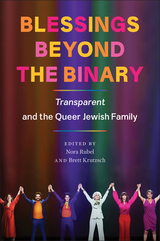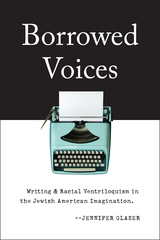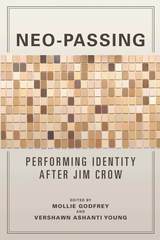3 books about Glaser, Jennifer

Blessings Beyond the Binary
Transparent and the Queer Jewish Family
Nora Rubel
Rutgers University Press, 2024
Transparent made history as the first television show to feature a transgender character in the main role, as the first streaming series to win the Golden Globe for Best Television Series, and as, in the words of journalist Debra Nussbaum Cohen, “the Jewiest show ever.” No television show in history has depicted the lives of American Jews with as much attention to Jewish rituals, quirks, or culture. And no series has portrayed issues of gender and sexuality alongside Judaism with such nuance and depth, making Transparent a landmark series in the history of television.
Blessings Beyond the Binary: Transparent and the Queer Jewish Family brings together leading scholars to analyze and offer commentary on what scholar Josh Lambert calls, “the most important work of Jewish culture of the century so far.” The book explores the show’s depiction of Jewish life, religion, and history, as well as Transparent’s scandals, criticisms, and how it fits and diverges from today’s transgender and queer politics.
The first book to focus on Transparent, Blessings Beyond the Binary offers a rich analysis of the groundbreaking series and its connections to contemporary queer, trans, and Jewish life.
Blessings Beyond the Binary: Transparent and the Queer Jewish Family brings together leading scholars to analyze and offer commentary on what scholar Josh Lambert calls, “the most important work of Jewish culture of the century so far.” The book explores the show’s depiction of Jewish life, religion, and history, as well as Transparent’s scandals, criticisms, and how it fits and diverges from today’s transgender and queer politics.
The first book to focus on Transparent, Blessings Beyond the Binary offers a rich analysis of the groundbreaking series and its connections to contemporary queer, trans, and Jewish life.
[more]

Borrowed Voices
Writing and Racial Ventriloquism in the Jewish American Imagination
Glaser, Jennifer
Rutgers University Press, 2016
In the decades following World War II, many American Jews sought to downplay their difference, as a means of assimilating into Middle America. Yet a significant minority, including many prominent Jewish writers and intellectuals, clung to their ethnic difference, using it to register dissent with the status quo and act as spokespeople for non-white America.
In this provocative book, Jennifer Glaser examines how racial ventriloquism became a hallmark of Jewish-American fiction, as Jewish writers asserted that their own ethnicity enabled them to speak for other minorities. Rather than simply condemning this racial ventriloquism as a form of cultural appropriation or commending it as an act of empathic imagination, Borrowed Voices offers a nuanced analysis of the technique, judiciously assessing both its limitations and its potential benefits. Glaser considers how the practice of racial ventriloquism has changed over time, examining the books of many well-known writers, including Bernard Malamud, Cynthia Ozick, Philip Roth, Michael Chabon, Saul Bellow, and many others.
Bringing Jewish studies into conversation with critical race theory, Glaser also opens up a dialogue between Jewish-American literature and other forms of media, including films, magazines, and graphic novels. Moreover, she demonstrates how Jewish-American fiction can help us understand the larger anxieties about ethnic identity, authenticity, and authorial voice that emerged in the wake of the civil rights movement.
[more]

Neo-Passing
Performing Identity after Jim Crow
Edited by Mollie Godfrey and Vershawn Ashanti Young: Foreword by Gayle Wald Afterword by Michele Elam
University of Illinois Press, 2018
African Americans once passed as whites to escape the pains of racism. Today's neo-passing has pushed the old idea of passing in extraordinary new directions. A white author uses an Asian pen name; heterosexuals live "out" as gay; and, irony of ironies, whites try to pass as black. Mollie Godfrey and Vershawn Ashanti Young present essays that explore practices, performances, and texts of neo-passing in our supposedly postracial moment. The authors move from the postracial imagery of Angry Black White Boy and the issues of sexual orientation and race in ZZ Packer's short fiction to the politics of Dave Chappelle's skits as a black President George W. Bush. Together, the works reveal that the questions raised by neo-passing—questions about performing and contesting identity in relation to social norms—remain as relevant today as in the past. Contributors: Derek Adams, Christopher M. Brown, Martha J. Cutter, Marcia Alesan Dawkins, Michele Elam, Alisha Gaines, Jennifer Glaser, Allyson Hobbs, Brandon J. Manning, Loran Marsan, Lara Narcisi, Eden Osucha, Gayle Wald, and Deborah Elizabeth Whaley
[more]
READERS
Browse our collection.
PUBLISHERS
See BiblioVault's publisher services.
STUDENT SERVICES
Files for college accessibility offices.
UChicago Accessibility Resources
home | accessibility | search | about | contact us
BiblioVault ® 2001 - 2024
The University of Chicago Press









